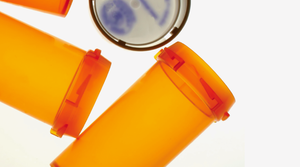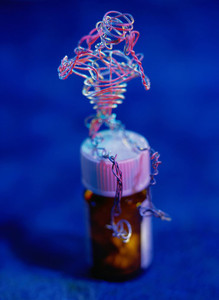In light of recent increases in the price of generics, the UK’s National Audit Office (NAO) has carried out an investigation into the causes of the increases.
During 2017, the prices of certain generics purchased by pharmacies for the UK’s National Health Service (NHS) increased unexpectedly, placing what NHS England described as a ‘significant unbudgeted pressure’ on clinical commissioning groups (CCGs).
Pharmacies buy medicines from wholesalers or manufacturers and are reimbursed according to prices set in the Drug Tariff. If pharmacies are unable to purchase a medicine at this set amount, then a concessionary price can be set to allow the NHS to reimburse pharmacies at a temporarily higher price.
During 2016−17, the NHS spent an estimated GBP 4.3 billion, or 28% of total medicine expenditure, on generics. However, during 2017−18, the prices of certain generics increased significantly, resulting in an unprecedented rise in the number of requests from pharmacies for concessionary prices. These increased from fewer than 150 a month before May 2017 to a peak of 3,000 in November 2017.
The NAO estimated that an extra GBP 315 million was spent on concessionary-priced generics in 2017−18, which is seven times greater than the equivalent amount spent in 2016−17.
The NAO also noted that the prices of some generics increased more than tenfold. For example, at its peak, antipsychotic drug quetiapine (100 mg tablets) cost GBP 113.10, which is 70 times higher than its previous set price of GBP 1.59.
Factors identified which may have driven the 2017 price increases included suspension of some manufacturers’ licences and a fall in the value of sterling, as well as increases in manufacturers’ prices and unexpected growth in wholesalers’ margins. The analysis also indicates a direct relationship between price increases and shortages for four out of 10 medicines granted concessionary pricing. It also found that the concessionary prices granted were set higher than necessary above wholesalers’ selling prices. The NAO estimated that this amounted to GBP 86.3 million of additional costs in 2017−18.
There have been some high profile cases of price increases recently. For example, Actavis increased the price of generic hydrocortisone tablets by more than 9,500−12,000% compared to the brand-name product, which was sold by a different company prior to April 2008 [1]. This has led to the introduction of a new law in the UK that aims to clarify and extend the government’s powers to regulate the cost of medicines and medical supplies and to collect sales and pricing information from pharmaceutical companies [2].
The law gives the UK’s Department of Health (DoH) new powers – expected to come into force in July 2018 – to control the price of generics and obtain sales and other information from manufacturers and wholesalers. The new legislation will also introduce mandatory information sharing arrangements, as the DoH has had to rely on voluntary arrangements, which limited its ability to identify and respond to price increases.
Related articles
UK’s DoH says most medicines don’t experience shortages
Call for compulsory license for biosimilar trastuzumab emtansine
References
1. GaBI Online - Generics and Biosimilars Initiative. UK competition authority accuses Actavis of overcharging NHS [www.gabionline.net]. Mol, Belgium: Pro Pharma Communications International; [cited 2018 Jul 6]. Available from: www.gabionline.net/Generics/General/UK-competition-authority-accuses-Actavis-of-overcharging-NHS
2. GaBI Online - Generics and Biosimilars Initiative. UK introduces new law to control generic drug prices [www.gabionline.net]. Mol, Belgium: Pro Pharma Communications International; [cited 2018 Jul 6]. Available from: www.gabionline.net/Generics/General/UK-introduces-new-law-to-control-generic-drug-prices
Permission granted to reproduce for personal and non-commercial use only. All other reproduction, copy or reprinting of all or part of any ‘Content’ found on this website is strictly prohibited without the prior consent of the publisher. Contact the publisher to obtain permission before redistributing.
Copyright – Unless otherwise stated all contents of this website are © 2018 Pro Pharma Communications International. All Rights Reserved.








 0
0











Post your comment